A Mayo Clinic study has shown that hysterectomy without removal of ovaries increases the risk of heart disease. Women who had a hysterectomy before age 35 are at a particularly high risk. Specifically, their risk was 4.6-fold for congestive heart failure and 2.5-fold for coronary artery disease. But this association is not new. This 1981 study showed a 3-fold increased risk of heart disease after a premenopausal hysterectomy. This would include most women who undergo hysterectomy. This 1982 study and this one from 1985 cite the uterine substance prostacyclin as the likely factor in women’s heart health. Since about 45% of women have a hysterectomy, it is no wonder heart disease is the #1 killer of women!
Heart Disease: Just the Tip of the Iceberg
Hysterectomy is bad for much more than the heart.
- Hormone changes. Hysterectomy impairs the function of the ovaries which are part of the endocrine system. Multiple studies have shown this including this one and this one. This would logically predispose hysterectomized women to the same increased health risks and accelerated aging of ovary removal (castration). According to numerous studies such as this one and this Mayo Clinic one, the risks of ovary removal include heart disease, stroke, metabolic syndrome, osteoporosis, hip fracture, lung cancer, colorectal cancer, dementia, Parkinsonism, impaired cognition and memory, mood disorders, sleep disorders, adverse skin and body composition changes, adverse ocular changes including glaucoma, impaired sexual function, more severe hot flushes, and urogenital atrophy. Wow, what a list for such a common and rarely necessary surgery!
- Figure changes. The uterus and its ligaments are key to the integrity of the pelvis. The cutting of those ligaments, the pelvis’ support structures, destroys pelvic integrity. As a result, a woman’s figure changes. The hips widen and the torso collapses until the rib cage sits directly on the hip bones. This causes a shortened and thickened midsection, protruding belly, and loss of the curve in the lower back making the derrière appear flat. These changes lead to back, hip, and leg problems, chronic pain, and impaired mobility. These effects are discussed here. Back pain after hysterectomy is one of the (many) “dirty little secrets” of Gynecology.
- Organ dysfunction. The uterus sits between the bladder and bowel and keeps them where they belong. Hence, these organs drop and are adjacent to each other after hysterectomy. These changes can cause dysfunction as discussed here and here.
- Sexual dysfunction. The uterus is a sex organ. Many hysterectomized women report a loss of sexual function – libido, arousal, and ability to orgasm – with or without ovary removal. Many also report feeling asexual and emotionally empty. This may explain why a renowned gynecologist referred to the uterus as a woman’s “heart center.” How ironic that the uterus is also essential to heart health!
- Cancer risks. Last but not least, removal of the uterus increases the risk of some cancers. These include thyroid, renal cell (kidney), bladder, rectal and brain cancers.
The Devastating Toll of Hysterectomy
Women’s experiences are also compelling evidence of the devastating effects of hysterectomy. It can affect every relationship and aspect of life having far-reaching societal repercussions. Here, here and here are some heartbreaking stories of shattered lives. The Bleeding Edge documentary chronicles the stories of a few women who were harmed by Essure (tubal sterilization coils) and subsequently had hysterectomies. The HERS Foundation’s recently launched “In My Own Voice” project includes some women’s stories. Hopefully, more will come forward and share their experiences.
The uterus and ovaries are essential to a woman’s whole life. Female organ removal has been proven over and over again to be incredibly harmful as far back as 1912. Yet 45% of women end up having a hysterectomy. And over half are castrated at the same time which further increases the risk of heart disease. Additionally, more women have ovaries removed during separate surgeries. It is no wonder heart disease is the #1 killer of women.
Female organ removal is the biggest healthcare con as discussed here. Lack of informed consent is standard. And even worse, gynecologists commonly use unethical tactics such as instilling fear of cancer and intentionally misinforming women about the consequences. If women knew the facts, very few would consent to hysterectomy or oophorectomy.
In conclusion, the medical industry can no longer put its head in the sand or deny the horrific harm of these surgeries. Only 10% are done for a cancer diagnosis. Yet, it appears that they are gearing up to do even more. The Graduate Medical Education (GME) hysterectomy minimum was recently increased from 70 to 85. When will the ethical medical professionals or authorities address this intentional harm and sexual assault of almost half of U.S. women?
We Need Your Help
More people than ever are reading Hormones Matter, a testament to the need for independent voices in health and medicine. We are not funded and accept limited advertising. Unlike many health sites, we don’t force you to purchase a subscription. We believe health information should be open to all. If you read Hormones Matter, and like it, please help support it. Contribute now.
Yes, I would like to support Hormones Matter.
Image from PxHere; CCO public domain.
This article was published originally on February 12, 2019.
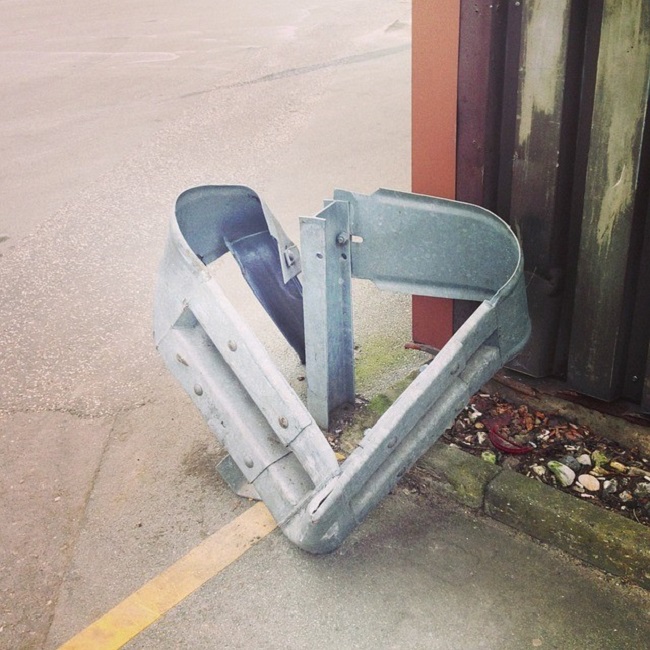



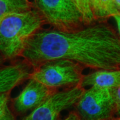
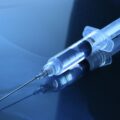
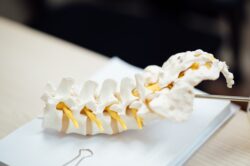
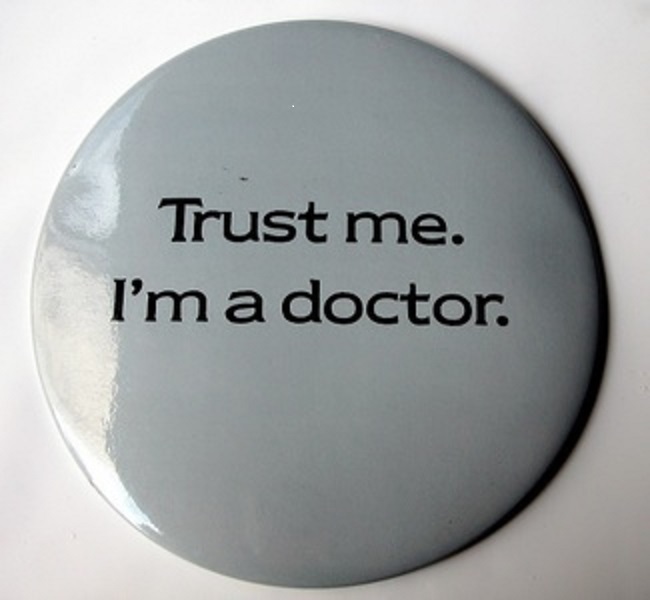


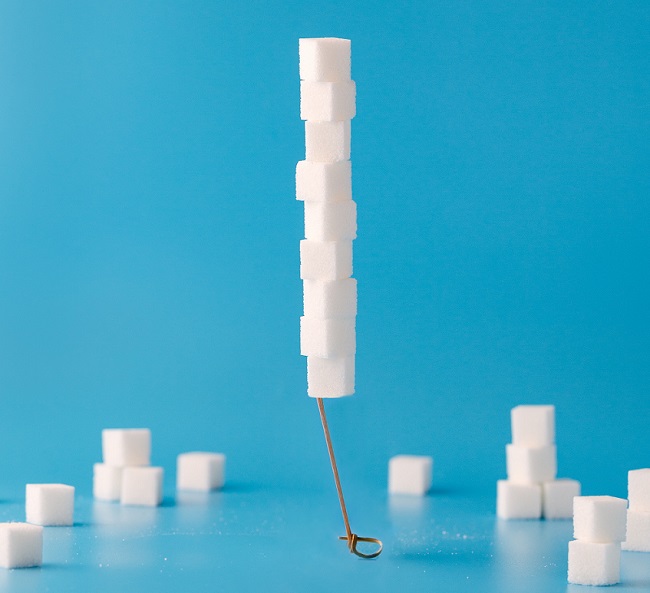

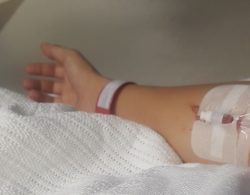

I feel for all of the ladies that have had this surgery. I am one that is currently going round and round with making the decision to do this surgery. I’ve been having abnormal pap smears and my gynacologist, of course, wants to take out my organs, all of my organs. I am over 60 and will no longer have children and am post menopause. I did not realize how important the ovaries and uterous is. My OB GYN has agreed to leave the ovaries with pure anger because I am going against him, and now I feel that I should tell him to leave the uterous. THis is driving me crazy with too many decisions. Help.
Unfortunately I didn’t have a choice. I had cancer and because the US and our society hates women, there is no treatment other than removal if cancers invaded the uterine wall.
These reports and comments only point up the work of Hans Selye who studied the biological effects of stress. The response to all forms of stress is an energy dependent reaction that he called the General Adaptation Syndrome (GAS) Hysterectomy, as indeed is any surgery, is an enormous cause of stress and requires a huge expenditure of ENERGY. Failure to adapt, caused by insufficient cellular energy is the reason that so many female bodies fall apart after this surgery. Selye called human disease “the diseases of adaptation.
Hello all. I would like to submit that we attempt to reframe the language around this issue – the official medical name for this procedure is Uterectomy. We are all in awareness that the term ‘hysteria’ was an archaic form of ‘diagnosis’ for a woman who spoke her mind. Why now must the medical world continue to use such archaic language (and treatment and legislation) around our soverign bodies? At the very least to reference our organs with the correct terminology. Let us aim to have this surgery’s proper title regained. Removal of the uterus is a Uterectomy. Thank you.
PBJ – In my opinion, what really matters is that medical professionals stop treating the female organs as if they are disposable and provide women with all the medically documented facts about the lifelong functions of the female organs and the short and long-term effects of their removal. And let’s start calling oophorectomy / ovary removal “castration”.
In response to Lisa’s comments, people (and especially the women who have had hysterectomies) need to stop excusing the doctors and other medical professionals involved in the overuse and misinformed consent of hysterectomy. This complacency allows this abuse and permanent harm of so many women to continue. The medical evidence is abundant and compelling. Hysterectomy does more harm than good when done for benign conditions which is the case for 90+% of hysterectomies. Ovary removal / castration is likewise incredibly harmful yet the ovary removal (castration) rate is 71% of the hysterectomy rate. It is time that the public be outraged about this intentional harm of about half of U.S. women. We need a movement similar to #MeToo!
WS – Hello, I am trying to contact you, but am unable to fill out the form properly? I was unable to fill out my name and e-mail in the boxes? I was finally able to add my e-mail address in the right box, but was still unable to add my name in order to properly submit. Sorry to bother you here, but could not think of any other way to contact you about this issue under the contact us option. Can you please fix this? Thanks so much WS 🙂
@Lisa – I find your comment extremely arrogant and insensitive! I am almost 9 years post op, and I can say without a doubt that it ruined my life to a very large extent, especially my figure. The skeletal and anatomical changes are horrific! I am dealing with chronic back, hip, and rib pain. I don’t have anywhere near the energy I once did, and socialising and connecting with people is hard. Shame on YOU for telling others to ignore these well researched, fact based articles. This article speaks the truth, and you just sound like you are in some kind of denial. If you are so happy with your decision, then I have to ask why you are reading/looking up articles like this in the first place???
I’m sorry you’re experiencing that Crystal. I’ve counteracted this with specific resistance band straining targeting core and back. I agree with Lisa, super happy. Not rolling around in pain, passing out from fatigue, complex partial seizures and just f;$&8ing bleeding out everywhere extensively and ruining my good pants ARE NOT MISSED. But also reducing my cervical cancer risk with abnormal consistent paps since 16 and also the multiple surgeries every couple years for the endo….. the list goes on. Every woman is different. We need to start just speaking openly about experiences, questions to ask, etc. to help women find their best solution rather than fear tactics.
I agree with you Kristal. It’s all fear fear and fear. Fear can cause severe anxiety and can mess you up really bad. It’s good to know the impact of these surgeries on our body but also important to know ways to deal with them instead of crying over spilt milk. Some of us had these surgeries to help us be pain free and free of other painful procedures. It will be appreciated if people talk about things that are helping them too in terms of exercises, HRTs and diet. I rarely see people write about what HRTs have worked for them and the dosages and forms they’ve tried or natural remedies that have helped them.
Hi. If you need to get it done, get it done. Dont let articles like this frame your mind. I had a hysterectomy at 49 2 yrs ago. Was it necessary? No. If I had a chance to decide over again would I choose to do it? No. I bled for a whole month and was in pain. Probably due to wearing a very tight waist cincher. They claimed I had multiple fibroids but no proof so it was likely a big fat lie. And they took my cervix in case I get cervical cancer. Didnt buy into that but whatever. They left my ovaries. The only thing that I experienced from this article was a belly pouch. But im.overerweight too so who knows. I didnt know about organs collapsing. I kept asking if that area was going to be empty or what. No clear answer. My libido did not disappear. It went up. Sex is better. My mother had a hysterectomy after I was born. Shes 85. Overweight but no heart disease or anything mentioned here. I have friends who had hysterectomies and a sister in law who are glad they did it with none of the issues or diseases mentioned here. We are in our 50’s and 60’s so some of us have joint problems and back problems. Some like myself long before my surgery.
Thank you for your response. How did you bleed for a month if the uterus and cervix was gone? Where would the blood be coming from? I’ve heard of this before and I just don’t understand how it happens.
Thank you for your comment Lisa, much appreciated. It helps balance out the article. There are risks, there always are, but who knows if you’ll get any, or how many and how severe they will be. I agree with you, if you need to get it done, get it done. It’s always a matter of balancing pros and possible cons. I had a hysterectomy 6 months ago at the age of 39. Nothing I can do at this point except taking care of my body. Risks are risks, and with a heathly lifestyle, we can minimize risks. I see my hysterctomy as an additional motivation to take care of myself.
Reading this is so discouraging. I’m hoping to get a hysterectomy at the end of my pregnancy, due to having severe life-impacting bleeding every month. I’ve tried the suggestions on your site and many others to help minimize the bleeding, but nothing works. Birth control is the only option I haven’t tried, and refuse to try. Ibuprofen is the only thing that lessens the bleeding and allows me to do simple things like work and go to the store when I’m on my period…. but Ibuprofren isn’t good on the heart either. It seems my only options are to choose between increased risks of heart disease/back pain/bladder prolapse with a hysterectomy, or skip the hysterectomy and continue to live in agony 25% of my life (thanks to 8-day periods), while also risking my heart with the Ibuprofren. Not loving those choices!
ME, I am sorry you are faced with making this decision. It is hard to fathom that the effects of hysterectomy can be so devastating since it is such a common surgery.
Have you been checked for a clotting disorder? It seems many gynecologists fail to consider or test for that. I assume you are aware of and have considered tranexamic acid / Lysteda?
Please be sure to read all you can about the aftermath of hysterectomy. Of course, women who have had one are the best source. Some of my many articles here – https://www.hormonesmatter.com/author/ws/ – have quite a few comments from women who have had one which may be helpful.
I wish you the best.
Thank you for responding. I haven’t been checked for a clotting disorder but I don’t think that’s the issue as I used to have fairly normal periods. And I can’t really do anything about it right now because I’m pregnant. And because I have to have a C-section (yes, I truly HAVE TO), I am thinking that if I’m going to have a hysterectomy I should do it while I’m under the knife anyway. Such a difficult decision.
Even though I already replied, I feel compelled to say more. It’s hard to convey the despair that so many of us hysterectomized women feel. Hysterectomy has changed everything about me… my appearance, zest for life, sexuality, feelings of connection with others including my husband and children, ability to socialize, ability to manage daily life. But despite all these horrific effects, the most troubling that I will never get past (or haven’t in the 13 years since surgery) is how it destroys our figures, even for women who do not have the common side effect of weight gain. Not only does this give us that shortened “blob” of a midsection, it destroys our backs and hip bones causing problems for the rest of our lives. I used to have a bikini worthy body but I cannot even look in the mirror because it’s so depressing. These changes are probably THE biggest secret about hysterectomy.
Did you have a laparotomy (cut across bilini line or midsection) or laparoscopic (3 small incisions)? I’m wondering if anyone has done research to know that the bump in the stomach you were referring to is actually due to the uterus being taken out versus a standard after effects of any laparotomy surgery. I had a laparotomy four years ago when they had to remove to giant-sized dermoid cysts that were too large to take out any other way. And it definitely changed the shape of my stomach. So I’m wondering if that stomach Pooch you and other hysterectomized women talk about is from the surgery and not necessarily because the uterus is absent. Any research or knowledge on that?
I had a laparotomy but regardless of the surgical method / technique, the ligaments that attach to the uterus and pelvic walls have to be cut. These are the “bands” that hold the spine, hips and rib cage where they belong.
The method of surgery would not explain these changes. When doing a laparotomy to remove cysts or do a C-section (as I had), the uterine ligaments are not severed (since the uterus is not removed). Those uterine ligaments are the support structures for the pelvis. They connect to the pelvic side walls and keep, not only the uterus, but the spine, hips and rib cage where they belong. The resulting figure changes and back, hip and rib cage discomfort / pain are progressive. The HERS Foundation has an anatomy video about the lifelong functions of the female organs. Check out their website. It is also embedded at the end of some of my articles – https://www.hormonesmatter.com/author/ws/.
WS, are you speaking with a therapist? I have before and still do! I think that may help the coping with your uterus loss. Best of luck!
I agree with everything you said. I had Hysterectomy for heavy periods when I was 30yrs old!
Did not want it, I wan’t even aneamic.
I called my husband at 5am on Op day to pick me up from the H as we only lived 12 miles away. He arrived I was ready then,
He would not take me home,he refused point blank.
I changed me mind and it was noted 4 times on my H notes. As I have them.
I wish someone could help me, our wombs are connected t our brains and yes we have skeletal failings as 4 big tendons are severed when we have a hysterectomy which is the scaffolding if you like for our spine and pelvis.
They severed so many nerves, no I was never informed of any of this before hand.
So many nerves severed I have no feeling in my breasts,nipples
I have no feeling between my legs.
I was 30 when I died.